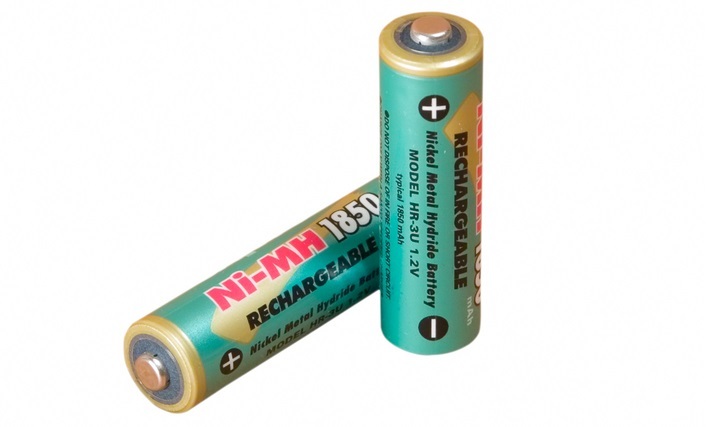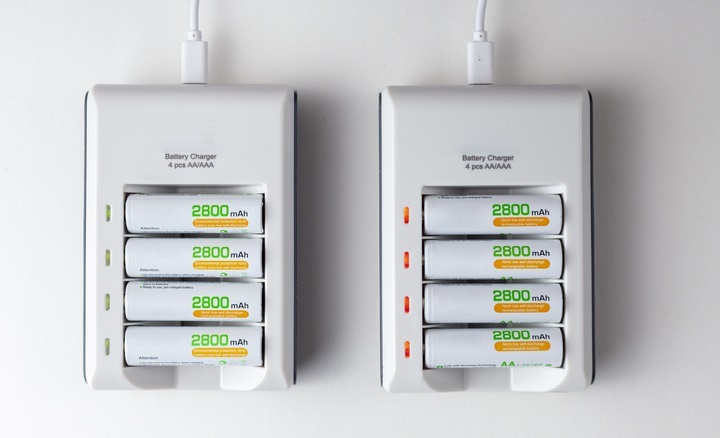
 Data Structure
Data Structure Networking
Networking RDBMS
RDBMS Operating System
Operating System Java
Java MS Excel
MS Excel iOS
iOS HTML
HTML CSS
CSS Android
Android Python
Python C Programming
C Programming C++
C++ C#
C# MongoDB
MongoDB MySQL
MySQL Javascript
Javascript PHP
PHP
- Selected Reading
- UPSC IAS Exams Notes
- Developer's Best Practices
- Questions and Answers
- Effective Resume Writing
- HR Interview Questions
- Computer Glossary
- Who is Who
Difference between NiMH and mAH Batteries
mAh (milliampere-hours) refers to a battery's capacity, or the amount of energy it can store and deliver. NiMH (nickel-metal hydride) refers to the chemical composition of the battery.
Read this article to find out more about NiMH and mAH batteries and how they are different from each other.
What are NiMH Batteries?
In NiMH batteries, hydrogen is used to store energy. Nickel Metal Hydride consists of a nickel hydroxide positive electrode plate, a hydrogen ion negative electrode plate, potassium hydroxide or another alkaline electrolyte, and a separator.
NiMH batteries are commonly used in cell phones, digital cameras, pagers, electric toothbrushes, medical instruments, and camcorders. It doesn't contain toxic metals. NiMH contains a higher energy density compared to the other rechargeable batteries. NiMH batteries produce a voltage of 1.2 volts.

NiMH batteries also have significant drawbacks. They typically require more recharges if they are not used regularly because they tend to self-discharge at a higher rate than non-rechargeable alkaline batteries. If NiMH batteries are not completely discharged before being recharged, they may exhibit a memory effect, which might lower their capacity.
What are mAH Batteries?
The amount of electrical charge that a battery can store and deliver is measured in mAh. By dividing the discharge current by the period of time the battery can supply that current, the battery capacity may be determined. It serves as the main supply of electricity. The longer a battery can power a device, the larger its mAh rating.
Typically, mAh rates are listed in the device's specifications or printed on the battery. To ensure appropriate operation and runtime when picking a battery for a gadget, make sure the battery's mAh rating is equal to or higher than the original battery.

The average capacity of a smartphone's battery is more than 3000 mAh. The higher mAh batteries are capable of powering a device for a long period of time.
The following formula is used to calculate the mAh batteries ?
Mh = Ah * 1000/temperature
The battery temperature affects battery life as well. A battery that is hotter will drain more quickly, whereas a battery that is cooler will require more power to charge. You can decrease the battery's temperature by keeping your smartphone in a pocket or bag and laying it down on a hard surface.
Difference between NiMH and mAH Batteries
The following table highlights the major differences between NiMH and mAH Batteries ?
Characteristics |
NiMH |
mAH |
|---|---|---|
Chemical Composition |
Nickel-metal hydride is the chemical composition of NiMH batteries. |
It doesn't have any chemical composition and refers to a battery's capacity. |
Batteries |
NiCad batteries |
lithium-ion batteries |
Capacity |
The capacity of NiMH batteries varies depending on the size of the battery. |
The capacity of mAh batteries is measured in milliampere-hours |
Rechargeability |
NiMH batteries are rechargeable. |
mAh batteries can be rechargeable or not. |
Energy Density |
Low Energy Density |
The energy density completely depends on the battery capacity. |
Examples |
Electronic gadgets such as remote controls, cordless phones, and digital cameras |
mAh are used to describe the capacity of a battery. |
Conclusion
In conclusion, NiMH and mAh are separate battery characteristics and cannot be directly compared. Rechargeable batteries known as NiMH use electrodes made of an alloy with a nickel base and hydrogen-absorbing properties. The capacity of a battery to store and distribute energy is measured in mAh, a quantity that can be used to represent the capacity of both rechargeable and non-rechargeable batteries made of various chemistries.
While NiMH batteries are frequently seen in electronic equipment, the unit of measurement for battery capacity in milliampere-hours is mAh. NiMH and mAh batteries have different characteristics, which can help people choose the best battery for their unique needs.

